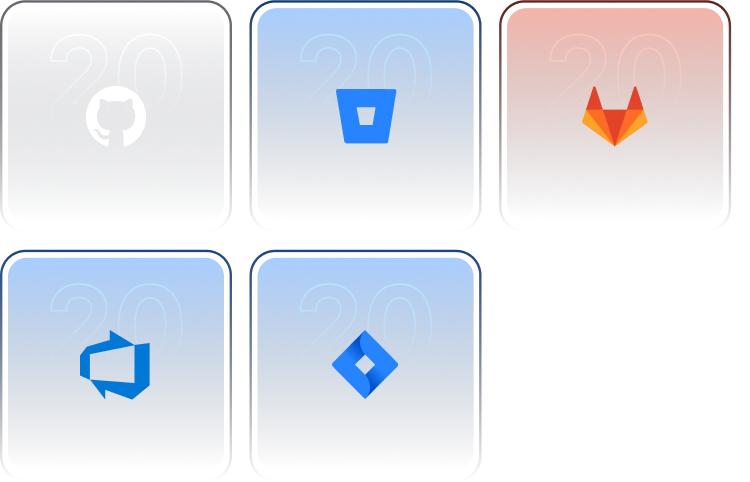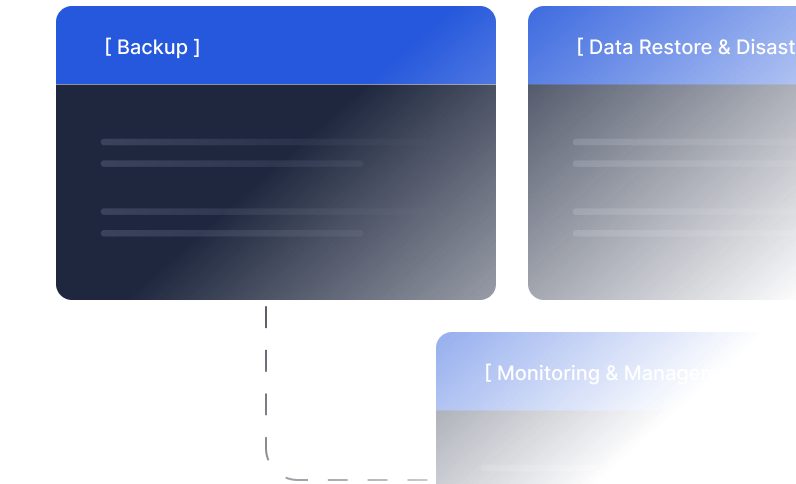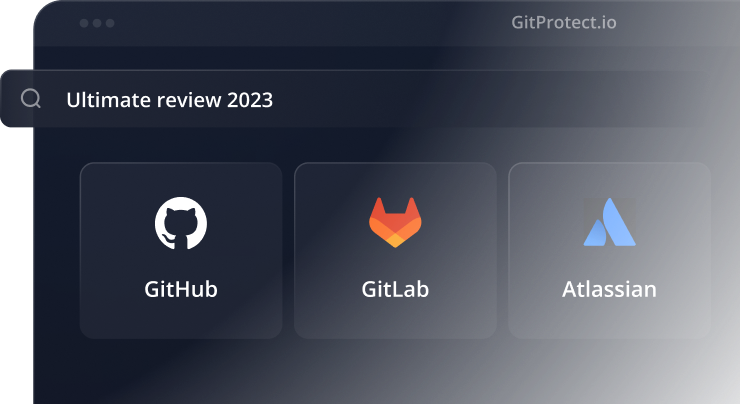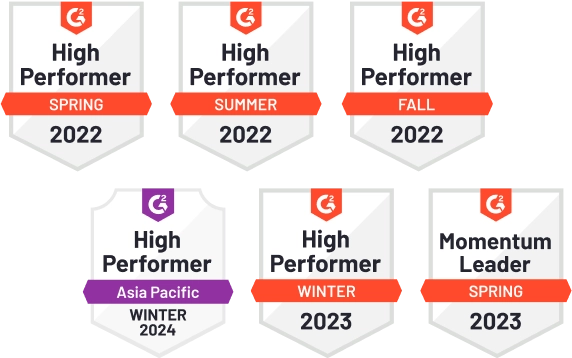Private & public repos
DevOps first-aid backup & Disaster Recovery solution in action...
Learn moreDevOps first-aid backup & Disaster Recovery solution in action...
Learn moreBuilding a secure data protection strategy is crucial as all your GitHub data is vital...
Learn moreFull Bitbucket data coverage guarantees business continuity...
Learn moreBackup of all your GitLab repos & metadata guarantees continuous workflow...
Learn moreFull Jira data protection is key to your business & operational resilience...
Learn moreEnabling or disabling LFS permits to manage the speed of you recovery processes...
Learn moreGitProtect automates the backup of Azure DevOps repositories, branches, pipelines, LFS, and more…
Learn moreStart protecting your data in a few simple steps and forget about data loss...
Learn moreHave peace of mind with scheduled backups to meet your security & legal needs...
Learn morePossibility to manage your backup rules enables effective backup performance...
Learn moreManage your backup policies and meet your special needs and requirements...
Learn more
Basic, GFS, Forever incremental or custom - choose the backup rule to meet your needs.
Learn moreLong-term retention up to unlimited for your compliance purposes.
Learn moreGet the full use of compression - save storage & optimize your file transfer.
Learn moreControl your backup speed & CPU load - do as many backup tasks at a time as you need.
Learn moreThrottling-resistant mechanisms that don’t affect your backup performance.
Learn more
Granular restore as an instant guarantee of your DevOps & Jira ecosystem consistency.
Learn morePoint-in-time restore helps minimize data loss and preserve business continuity.
Learn moreTrue Disaster Recovery Technology that answers any DR scenario challenges.
Learn moreCross-over recovery & data migration for data consistency.
Learn moreEnable a few restore destinations to guarantee continuous workflow of all your operations.
Learn moreMinimize the risk of data loss with GitProtect.io’s replication policies.
Learn moreCross-over recovery helps you migrate your critical DevOps data with ease.
Learn moreMinimize the risk of data loss with GitProtect.io’s replication policies.
Learn moreMinimize the risk of data loss with GitProtect.io’s replication policies.
Learn moreMinimize the risk of data loss with GitProtect.io’s replication policies.
Learn moreMinimize the risk of data loss with GitProtect.io’s replication policies.
Learn moreMinimize the risk of data loss with GitProtect.io’s replication policies.
Learn moreReplicating data from any-to-any data store ensures data redundancy.
Learn moreRansomware protection as a guarantee of seamless DevSecOps processes.
Learn moreGitProtect encrypts data and keeps it in a non-executable form on storage
Learn moreBy default, devices don’t have constant access to sensitive data...
Learn moreSecure your critical DevOps data at any stage of your touch with data.
Learn moreThe most reliable encryption to guarantee cyber-proof data transmission.
Learn moreSafe and sound data transmission in a few clicks.
Learn moreUnderstand your duties to build a reliable backup and security strategy.
Learn moreKeep your DevOps backup where you need to meet your legal & compliance needs.
Learn moreGuarantee reliable DevOps data protection with SOC 2-compliant backup software.
Learn moreEnsure your data confidentiality, integrity, and availability with ISO 27001-compliant backup.
Learn moreStay secured with GDPR-compliant backup solution.
Learn moreMeet your security, legal, and compliance requirements with the GitProtect SaaS deployment and data residency of choice…
Learn moreDeploy GitProtect service within the preferred environment - a cloud service like Azure or AWS or your own data center…
Learn moreSimplifying authentication to GitProtect.io by integrating SAML capability.
Learn moreFast login capabilities to boost productivity.
Learn moreSecure methods of authorization can enhance your data security posture.
Learn moreRole-based access controls bring full control over your data backup management.
Learn moreEnsure that you have full control over your encryption approach with zero-knowledge encryption
Learn moreKeep your credentials in an internal password vault for secure key management
Learn moreComprehensive information gathered through a variety of system dashboards enables efficient backup monitoring...
Learn moreDaily plan report is another way to ensure the reliability and compliance of data protection...
Learn moreGitProtect.io provides you with a easy insight into your organization SLA status...
Learn moreApart from the SLA overview, GitProtect provides users also with downloadable monthly reports to...
Learn moreCompliance summary indicates areas that are OK or still require additional attention...
Learn moreGet a full vision of your backup performance and meet your compliance requirements.
Learn moreAdvanced audit logs as proof of backup reliability, efficiency, and compliance.
Learn moreOur Slack integration permits you to easily verify the status of your backup performance quickly...
Learn moreMeet compliance needs and stay updated with real-time notifications & reports.
Learn moreGitProtect.io permits you to use any Webhook portal to send information about your backup...
Learn more
Have full control over your backup management with GitProtect.io unified web console.
Learn moreAssign for your security team members dedicated accounts to manage backup policies...
Learn moreDefine roles and privileges in accordance with your internal policies and security best practices.
Learn moreBack up an unlimited number of your DevOps ecosystems for your data resilience.
Learn moreSecure your DevOps & project management data without writing a single line of code
Learn moreStart protecting your DevOps environment without interrupting your core working processes
Learn moreStay sure that no line of your source code or file is lost
Learn moreEnsure data resilience with unlimited backup scalability
Learn moreI can set up a backup plan and have a high level of confidence that it is going to work. I worked with other backup products for different IT services and never felt [until now] comfortable that the backup plan was going to work as expected.
Learn moreWhen we need to restore a repository, GitProtect brings speed, convenience and security to this process.
Learn moreThe fact that the platform supports Jira, Confluence, and GitLab means that we have one single platform for our most mission-critical assets.
Learn moreWith GitProtect.io we were able to bring all our Git repositories into backup compliance with the use of a single tool. Bonus points for Jira, we were only looking to backup Git, but we got Jira along with it!
Learn moreI like very much the possibility to back up from one environment [Bitbucket] and restore the repo to another environment [Bitbucket, GitHub, GitLab].
Learn more